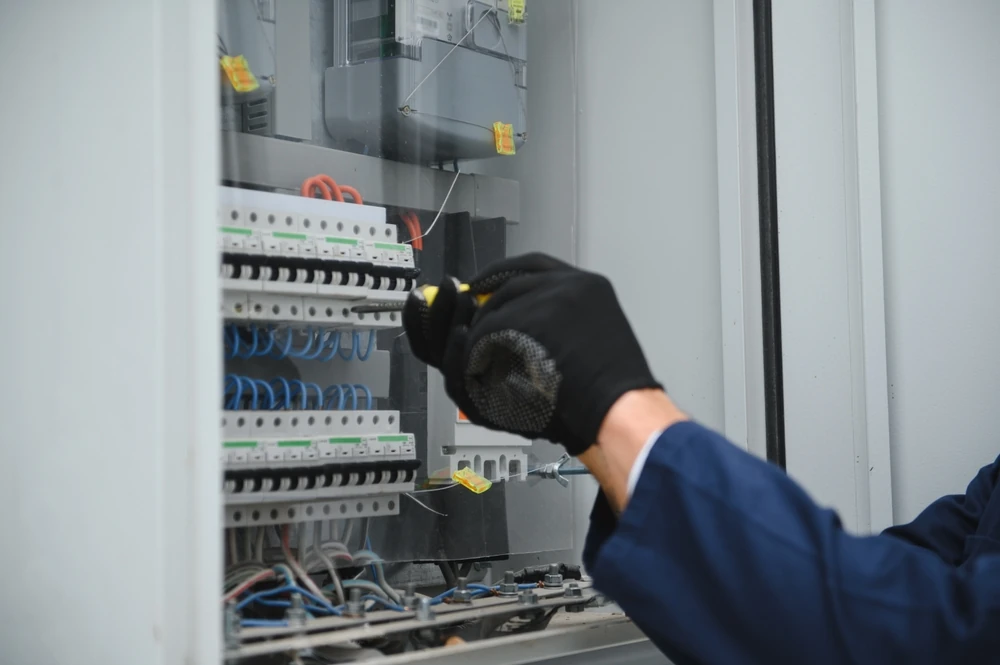
Life on the Northern Beaches is all about the coast’s beauty, but it also means making sure your home is ready for modern tech and sustainable living. As smart home systems and electric vehicles (EVs) become everyday essentials, homeowners have a unique opportunity to lead the charge. At Hudson Electrical, we’ve seen how the salty air, busy holiday seasons, and rising demand for energy-efficient living all shape the way homes need to be upgraded.
In this guide, we’ll walk you through the key steps to get your home ready for smart tech and EV charging, covering energy management, corrosion-resistant solutions, and future-proof upgrades that fit into coastal living.
Coastal homes have their quirks: plenty of sunshine for solar, but also salt and humidity that can wear down electronics. With this, let's explore smart home upgrades that not only enhance comfort but also ensure reliability in coastal climates.
When upgrading your home with smart technology, choose devices designed to withstand coastal conditions. Look for smart devices, such as thermostats, sensors, and cameras, that are specifically rated for high humidity and salt air exposure. Many manufacturers offer products with protective coatings and sealed inclosures that prevent corrosion and prolong the lifespan of the devices.
Smart climate control systems, such as smart thermostats and zoned HVAC systems, are essential for energy efficiency. These systems can learn your schedule and preferences, automatically adjusting the temperature to optimise energy use. In coastal climates, it’s important to select models that can handle fluctuations in humidity and temperature, ensuring consistent performance throughout the year.
Integrating smart lighting systems can reduce consumption. Consider installing smart bulbs and automated lighting controls that adjust based on natural light levels and occupancy. Coastal homes benefit from smart lighting that can adapt to varying levels of daylight, reducing reliance on artificial lighting and taking advantage of the abundant natural light.
The Northern Beaches are perfectly positioned to take advantage of solar energy. However, the proximity to the ocean requires quality solar panels. Choose high-quality panels with strong warranties from reputable manufacturers. Look for panels with frames and glass designed to resist salt spray and humidity.
Pairing solar panels with a battery storage system can maximise energy savings and provide greater energy independence. Battery storage saves daytime solar power for use at night or during peak times, cutting grid reliance and providing storm-ready backup.
To fully harness the potential of solar and battery systems, a smart energy management system is essential. These systems monitor energy production and consumption in real time, allowing homeowners to optimise energy use and reduce waste. By automating the charging and discharging of the battery based on energy prices and weather forecasts, smart management systems ensure the most efficient use of solar power.
As EVs become more prevalent, installing an EV charger at home is becoming a common and necessary upgrade for homeowners. For those living in coastal areas, there are specific factors to consider to ensure a safe, efficient, and future-proof installation. This section will guide you through the essential aspects of selecting the right EV charger for your property, as well as the unique cost and safety considerations for coastal installations.
When selecting an EV charger, it's crucial to understand the different types of chargers available:
For coastal homes, it's essential to choose an EV charger that suits your vehicle and your environment. Consider the following features:
The cost of installing an EV charger in a coastal home can vary based on several factors:
Safety is paramount, especially in coastal environments where moisture and corrosion can pose risks:

One thing to remember is to focus on maintenance and safety to ensure seamless and safe operation. Our coastal environment adds unique challenges, primarily due to the increased risk of corrosion and the need for regular monitoring of electrical systems. Here, we will discuss strategies for maintaining high-tech homes, focusing on preventing corrosion in electrical systems and the importance of regular electrical inspections.
Living in a coastal area means your home's electrical systems are constantly exposed. This can compromise the integrity of your electrical systems, leading to potential failures and safety hazards. Here are some effective strategies to mitigate these risks:
Routine inspections keep your systems safe, efficient, and compliant while catching issues early.
Getting your home ready for smart tech and EV charging isn’t just convenient; it’s a smart investment that makes your lifestyle easier and your property more valuable. By choosing energy-efficient devices, installing weatherproof and corrosion-resistant systems, and planning your electrical infrastructure, you can enjoy smarter living while protecting your coastal investment. Ready to make the switch? Partner with us at Hudson Electrical, and take the first step towards a safer, smarter, and more sustainable home today.